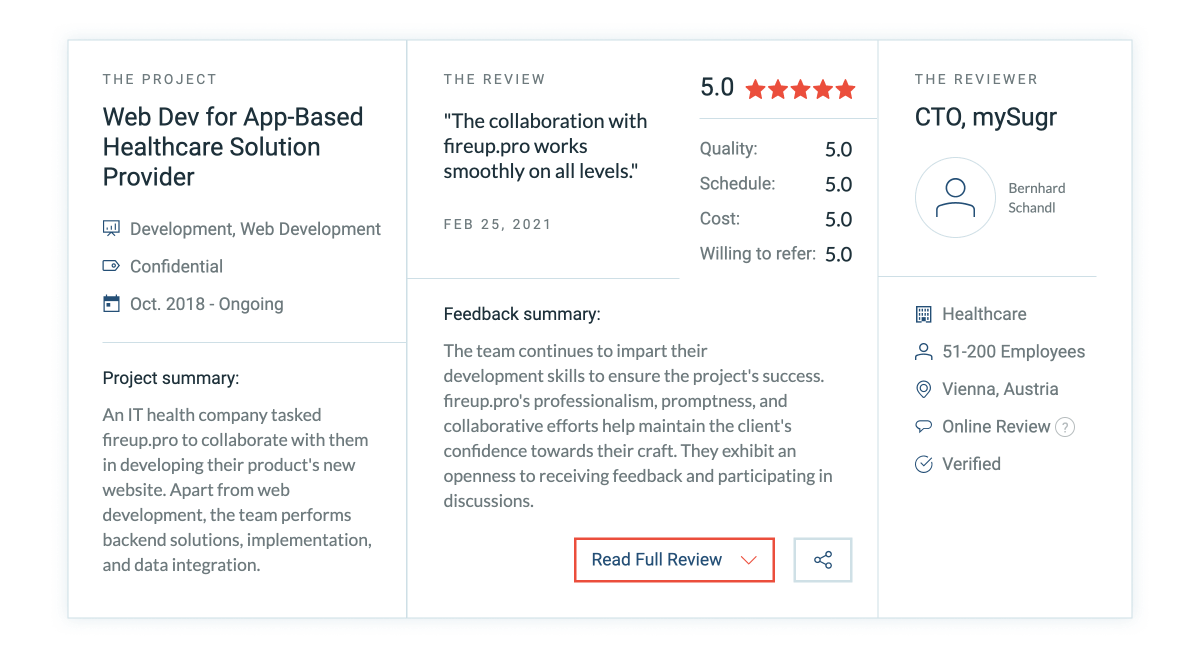The demand for software development rises as enterprises depend more and more on technology. But what happens if a company lacks the time or expertise to create its own software? This is when outsourcing comes in handy.
Due to the rapid growth of technology, businesses are having trouble developing in-house programming solutions while still remaining competitive. Choosing to outsource software development for your project might occasionally be made under stress when the objective is to optimize every resource and process. Finding reputable service providers who can supply experienced developers can seem difficult until you know what to search for.
Table of Contents
What is software outsourcing?
Software Development Outsourcing, in its most basic definition, refers to a situation in which a company chooses to work with an outside software development team to efficiently complete all project-related tasks that may be completed internally. The practice of giving control of a particular business process or project to a third-party vendor who is equipped and qualified to handle the necessary business duties is known as software outsourcing.
As businesses have learned the advantages of outsourcing some or all of their software development requirements to a third party, it has grown in popularity in recent years.
The most common benefits of outsourcing software development are:
- Access to a global skilled workforce because of outsourcing – you can make sure the best team is working on your projects by distributing them internationally. Outsourcing can give you access to capabilities and facilities otherwise not accessible or affordable.
- Increased efficiency – selecting an outsourcing company will help you get a more effective, efficient solution that is frequently of higher quality.
- Reduce software development costs and save time – the final product can be delivered more quickly by an outsourced company than by an internal team or local expertise.
- Fresh viewpoint – hiring external dev teams that were not previously involved with your project can give it a fresh perspective.
However, outsourcing is increasingly being viewed as a path for growth that is exponential and enduring, rather than a one-time event.
What are the models for software outsourcing?
Businesses have a number of options for contracting out software development to companies throughout the world, where the development facilities may be located on-shore, offshore, or close-to-shore. Let’s take a closer look at the following:
Onshore Software Outsourcing
When a client collaborates with a software company’s development team that is based in the same country, this practice is referred to as onshore outsourcing. Onshore outsourcing has the benefit of virtually eliminating language barriers, which makes communication much simpler and, therefore, increases the effectiveness of outsourcing. Customers might have to pay more in development expenditures in exchange, though.
Offshore Software Outsourcing
Working with development teams located overseas is known as offshore outsourcing. This is the most economical choice because it allows for effective remote project management of software due to minimal labor expenses and online communication tools.
Nearshore Software Outsourcing
Nearshore outsourcing companies work with customers in neighboring countries.
Take a closer look at the concepts of offshoring, onshoring and nearshoring here >>
Benefits of Outsourcing software development:
- Outsourcing software development can help you save time and money
You can save time and money by hiring and supervising in-house IT engineers by outsourcing your software development to a third party. This could result in financial savings on wages, benefits, and office space.
Moreover, you will immediately see CEE’s advantage when you contrast the hourly rates and salaries in the IT sector of CEE nations with those in Western Europe or the US.
As you can see in the statistics, the salary for a software developer from Poland is around 100k PLN, which is roughly 23k USD. For this amount in Poland, you could hire three developers as the typical compensation for a similar position in the US is about 73k USD.
- Enhanced turnaround, quality, and time to market
You can save money by outsourcing software development instead of making costly hardware and software purchases. It’s the outsourcing company’s duty to complete all of these needs and specifications. The tools or software they require to do your assignment on the schedule are not your responsibility.
In addition to what we said in the preceding paragraph, this results in even more cost savings. Since the outsourced development team will handle everything, it is no longer required to hire and keep developers within. Often, you obtain better results than you could get from your own resources. Plus, the other departments of your business can gain from outsourcing software development.
- The growth and expertise that is shared by all
You can combine and match abilities and skills because you have access to a large talent pool. When you outsource, you can also benefit from cutting-edge technologies and trends that might not be accessible inside. You may develop even more and better ideas with them and build your business while they expand their own teams because an offshore development team can frequently work on projects for a fraction of the cost of recruiting a comparable staff internally.
For example, Slack has employed an outsourcing firm not for developing their bespoke app, but to beta test it. By collecting feedback on what worked and what didn’t, Slack was able to build a solution that businesses have been appreciating for years now.
- Flexibility
You may work with software outsourcing vendors only as necessary. Contrary to permanent employment, you have the flexibility to pay for outsourcing while the project is being completed because there is no legal requirement to retain a long-term contract. Comparing this to year-round full-time in-house developer hire, when their skills may not be as crucial after project completion, is especially favorable.
Additionally, cloud computing technology makes it simpler than ever for people to work remotely or at any time and from any location, eventually establishing remote working as the standard. The focus of offshore remote working is shifting away from micromanagement and toward the interaction between humans and machines. In this day and technology, the location of remote developers is less important. More than ever, hiring remote IT professionals to work on software projects is appealing.
What are the possible dangers of contracting out software development?
- Cultural differences
Including language difficulties (particularly when communicating design specifics), and cultural differences (such as different expectations around working hours). It’s essential to check that everyone shares the same cultural perspective when working with a team from a different nation. Understanding people’s communication styles, work habits, and values is a necessary component of this.
- Lack of control
There is no way for you to guarantee that the finished product will satisfy all standards. To avoid this, constantly request frequent status updates so you can monitor the project’s development.
- Shoddy validation
The outsourced software developers may not comprehend what is expected of them and make expensive mistakes if they have little experience with your sector or niche market. To prevent this, make sure that you have a project plan that is very clear and comprehensive and that specifies all of the team’s expectations. Additionally, you might want to think about putting in place a third-party verification procedure to find any flaws early on before they cost you money.

We wrote more about how to overcome these challenges here:
Hey CTO, Choose your External Software Development Team Wisely
How to outsource software development effectively?
When it comes to software outsourcing, there are several issues that influence the probability of winning. Among them, there are some considerations that businesses ought to have in mind, such as:
- Set definite objectives for outsourcing.
- Participate in project management and work with distant teams.
- Possess reasonable expectations.
- Establish goals and regularly assess development to provide feedback.

Check out what our Clients say about us on Clutch.
Make sure the business you select is trustworthy and qualified to handle the project. Working with a business that has a track record of producing high-quality software is what you desire. By reading reviews left by previous customers, visiting their website, and looking up news articles about them, you can determine a company’s reputation. In the end, contacting references might help you decide whether a given software development company is a good fit for your project. One of the best sources for this kind of information is Clutch.
Moreover, consider choosing outsourcing partners who use the Agile approach to manage their development projects in a flexible way, as this will enable higher quality and more frequent delivery as well as better collaborations. Additionally, using cutting-edge solutions for effective project work management is strongly advised to help with project visibility.
Summary
Outsourcing software development gives you a feeling of on-demand service, where you can adjust your external skills/cost by 'dragging’ a scale. If your core business is not software development or technology – outsource it.
Business owners and IT decision-makers turn to outsourcing to make their companies lean and boost productivity. Then, they will be able to focus on their core competencies, keeping the long-term strategic priorities on the right track.
Software development outsourcing can be a great option to receive high-quality, affordable services, but it’s crucial to complete your research before hiring an external dev team.
You may find a fantastic development partner who can assist your company in achieving its objectives by using the advice in this article.
If you think there’s any way we can support your outsourcing efforts, please don’t hesitate to get in touch with us.

